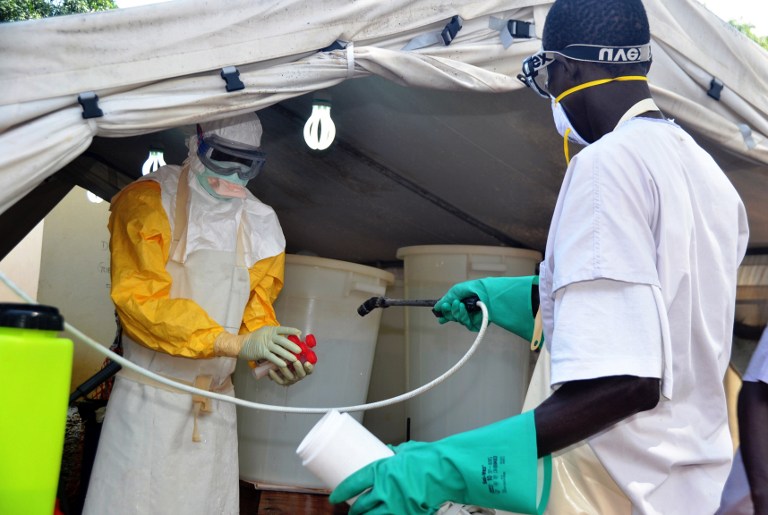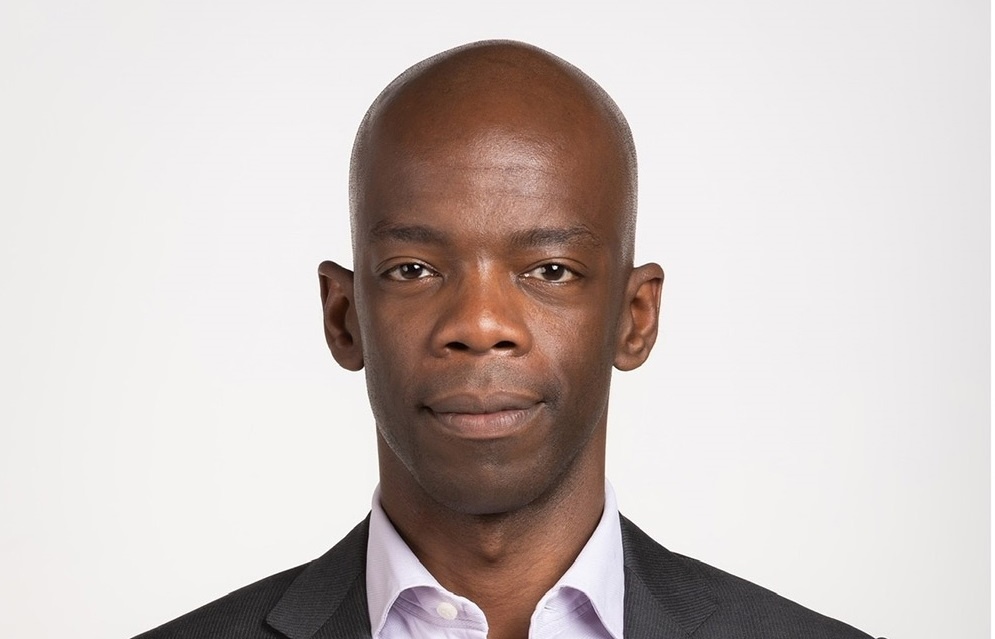Ebola or not, Liberia's body disposers 'burn them all'

Photo source AFP
Since the Ebola epidemic began to escalate, reaping its grisly harvest in every corner of Monrovia, the besieged city's dead have been brought to this crematorium.
Under a tin roof balanced on concrete posts, a pile of ash two metres (6ft 6in) high, with what looks like bones sticking out, is smouldering.
A double metal door is opened by a young man, face obscured by a paper mask, and the vehicle enters a large courtyard, bypassing a stack of wood used for fuel.
It matters little whether the bodies destined for the furnace have died of Ebola, some other tropical fever or a different affliction altogether.
"We burn them all. This is the advice from the Ministry of Health," says Victor Lacken, spokesman for the Red Cross, the organisation in charge of body disposal in the Ebola-ravaged capital.
It is at the moment of death that someone who has succumbed to Ebola is at their most contagious, virus particles multiplying in their trillions in the host's blood.
"The body becomes a beautiful environment for the Ebola virus to continue to replicate, because the immune system no longer works," says Laurence Sailly, emergency coordinator for Doctors Without Borders, known by its French initials MSF.
Sailly says no one can be sure how long the bodies remain contagious, so they need to be incinerated or buried at least two metres deep as soon as possible.
"Here, it was decided to burn them because the water table is very high. In July, some were buried in swampy areas and they came back up," she adds.
The epidemic has overwhelmed health services in west Africa with a spike in deaths in recent weeks in Liberia, which has accounted for more than half of the 3,000 deaths.
The World Health Organization (WHO) has sounded grave warnings over the possibility of tens of thousands more cases in the coming months.
And yet cremation "remains culturally frowned upon", says Sailly.
"It's hard to explain to people that they should not prepare their loved ones and bury them in a traditional way," said Liberian trade and industry minister Axel Addy, describing such practices as "expressways for propagation".
- Wages of fear -
The task of collecting bodies is complicated enormously by the entrenched and otherwise perfectly acceptable beliefs of locals in the deeply-conservative, Christian country concerning how one should say goodbye to the recently departed.
"There is a lot of protest, a lot of resistance from families," says Alex Wiah, chief of a burial team, as he suits up in protective gear ahead of a collection in the Mamba Point district of downtown Monrovia.
The 32-year-old has some experience of dealing with death. In what must seem like another lifetime he was an embalmer in a funeral parlour.
He says the burial teams talk to agitated relatives, reasoning with them, "to cool them down".
"People slowly begin to understand that it's necessary to pick up the bodies," he tells AFP.
Many of Wiah's colleagues are not quite so battle-hardened, but a monthly salary of £1,000 -- a king's ransom in impoverished Liberia -- helps them come to terms with daily horrors and the risks.
One of the most difficult obstacles the burial teams face in the tropical country of some four million people is the seasonal rain.
"It's much more dangerous when it's raining. The virus can spread in the water," says Wiah as his team waits patiently for the end of a torrential downpour.
An hour passes before the sky finally clears and the body collectors, dressed in their white biohazard suits, can approach their next job.
In a small house of blue-painted concrete breeze blocks, the body of Theresa Jakobs, just 24 at her death a day earlier, awaits them.
They spray disinfectant inside the building and over the body, which they pack into a bag and lay on a stretcher.
They haul the bodybag into the back of a waiting van and begin the tortuous process of undressing.
The removal of biohazard suits is an exacting, 15-minute procedure which has to be undertaken with precision to prevent accidental contamination.
On this occasion, however, the precaution seems somewhat unnecessary.
Johnson Chea, a social worker on the neighbourhood "Ebola task force" reveals that the woman has not died of the virus at all, or any other infectuous pathogen.
"She died of liver cancer. She was sick for years," he confides.
The operation has lasted almost two hours.
The team dusts down and moves on to the next location, to continue a grim task with no end in sight.
What the stars mean:
★ Poor ★ ★ Promising ★★★ Good ★★★★ Very good ★★★★★ Exceptional
Latest News
More News
- Top Chinese leader begins state visit to Vietnam (April 14, 2025 | 14:12)
- Top leader of China to pay state visit to Vietnam (April 11, 2025 | 12:28)
- Chinese online retailers face 90 per cent tax on goods sent to US (April 09, 2025 | 15:24)
- Earthquake strikes off Indonesia's Aceh province (April 08, 2025 | 16:21)
- Death toll in Myanmar’s March 28 earthquake exceeds 3,350 (April 08, 2025 | 16:15)
- Bangkok declares end of disaster situation (April 08, 2025 | 14:00)
- ASEAN hit hard by Trump's tariffs (April 05, 2025 | 09:00)
- What the world said about Trump's tariffs (April 03, 2025 | 14:57)
- Trump escalates trade war with sweeping global tariffs (April 03, 2025 | 14:53)
- Europe hits out at Trump tariffs, keeps door open for talks (April 03, 2025 | 14:39)


















 Mobile Version
Mobile Version